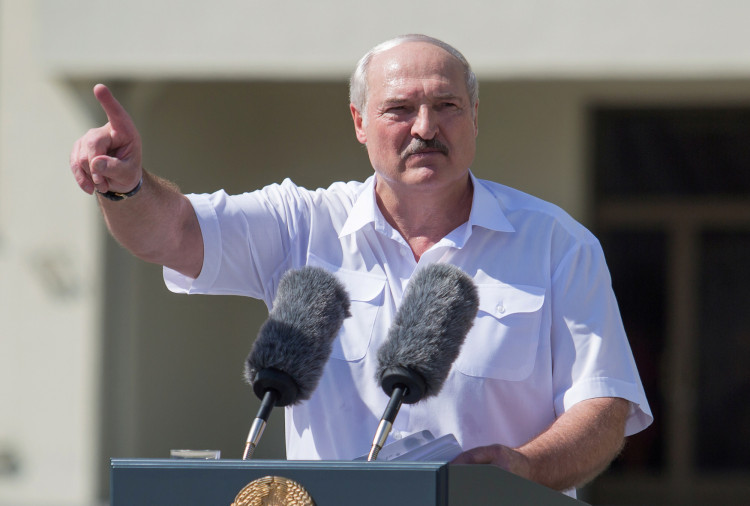Belarus President Alexander Lukashenko, often dubbed "Europe's Last Dictator," is set to secure a seventh term following a highly contentious election on Sunday. The vote, widely criticized by opposition leaders and international observers, underscores Lukashenko's unrelenting grip on power after three decades in office.
The election, conducted under tight state control, featured campaign posters of a smiling Lukashenko declaring him "Needed!" while his opponents, many of whom are in prison or exiled, decried the process as a sham. Opposition leader-in-exile Sviatlana Tsikhanouskaya called the election a "senseless farce, a Lukashenko ritual." She urged Belarusians to reject the vote and called on world leaders to withhold recognition of its results.
The European Union swiftly dismissed the election as illegitimate, citing severe restrictions on human rights and independent media. "Today's sham election in Belarus has been neither free nor fair," EU foreign policy chief Kaja Kallas and EU enlargement commissioner Marta Kos said in a joint statement. They also threatened new sanctions against Lukashenko's regime, although specific measures were not outlined.
Lukashenko, 70, has ruled Belarus with an iron fist since 1994, relying on financial and political support from Russia. His cooperation with Moscow, including allowing Russian forces to use Belarusian territory during the 2022 invasion of Ukraine, has further isolated him from the West. Speaking after casting his vote in Minsk, Lukashenko dismissed international criticism, saying, "The main thing for me is that Belarusians recognize these elections and that they end peacefully, as they began."
Critics argue the election was designed to eliminate risks of unrest like the protests that erupted after the 2020 presidential election, which was marred by accusations of vote-rigging. Those demonstrations, the largest in Belarusian history, resulted in over 65,000 arrests, thousands of beatings, and widespread condemnation from the international community.
"The trauma of the 2020 protests was so deep that Lukashenko this time decided not to take risks," said Belarusian political analyst Valery Karbalevich. The election was moved from August to January to minimize the chance of large-scale demonstrations, and Lukashenko faced only token opposition.
The four candidates on the ballot included loyalists like Sergei Syrankov, who openly supported Lukashenko and advocated for Soviet-era policies. The opposition accused authorities of orchestrating early voting, which saw a record 41.81% turnout, to enable ballot manipulation. Independent monitoring was effectively barred, with curtains removed from polling stations and voters prohibited from photographing their ballots.
Repression has intensified in the lead-up to the election. The human rights group Viasna reported the arrests of 188 people in December alone. The country holds nearly 1,300 political prisoners, including Nobel Peace Prize laureate Ales Bialiatski. While Lukashenko pardoned over 250 individuals since July, new arrests targeted relatives and friends of political prisoners, further entrenching his crackdown on dissent.
Lukashenko has also sought to portray himself as a guarantor of stability, campaigning under the slogan "Peace and security." His alignment with Russia has brought tactical nuclear weapons into Belarus, a move he described as ensuring peace. "It's better to have a dictatorship like in Belarus than a democracy like Ukraine," he remarked during the campaign.
Meanwhile, Lukashenko's son Nikolai, 20, has taken a more prominent public role, fueling speculation about succession plans. While Lukashenko insists he is not clinging to power, political observers remain skeptical. "The successor issue only becomes relevant when a leader prepares to step down. But Lukashenko isn't going to leave," Karbalevich said.
International backlash against the election continues to grow. The EU criticized the government for inviting election monitors from the Organization for Security and Cooperation in Europe (OSCE) only 10 days before the vote, effectively preventing proper oversight. Reporters Without Borders filed a complaint with the International Criminal Court over Lukashenko's crackdown on press freedom, noting that 43 journalists remain imprisoned.
Amid the political turmoil, Belarus made a rare overture to the West by unilaterally releasing an American citizen, Anastassia Nuhfer. The unexpected move surprised activists, as her name had not appeared on lists of political prisoners. U.S. Secretary of State Marco Rubio announced her release on social media but provided no further details.




